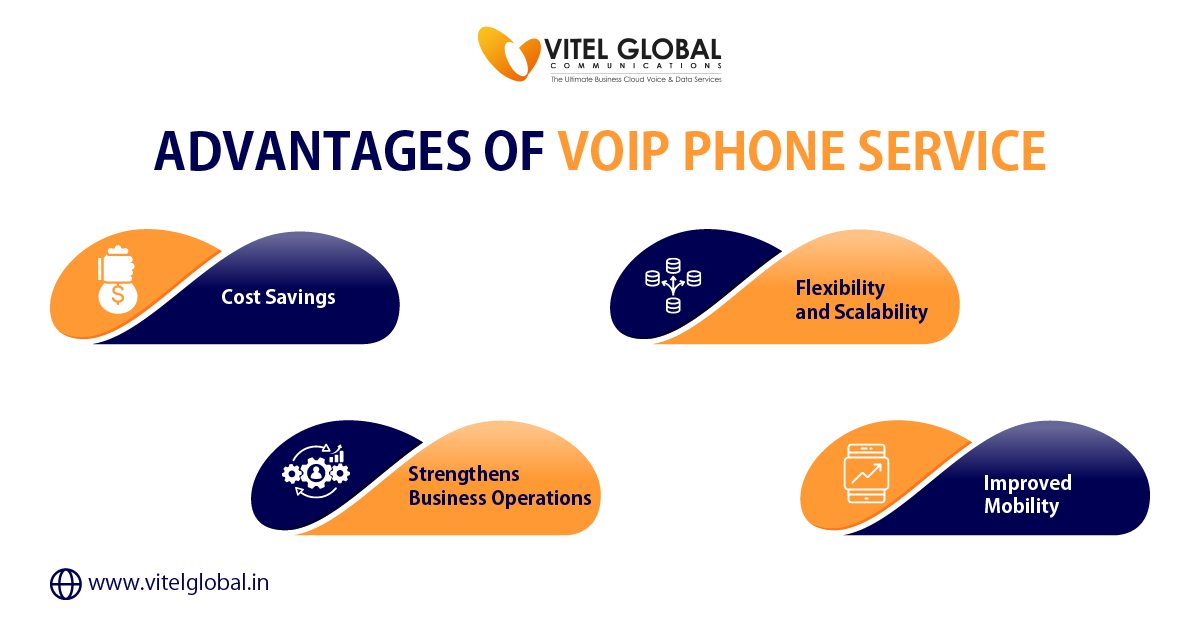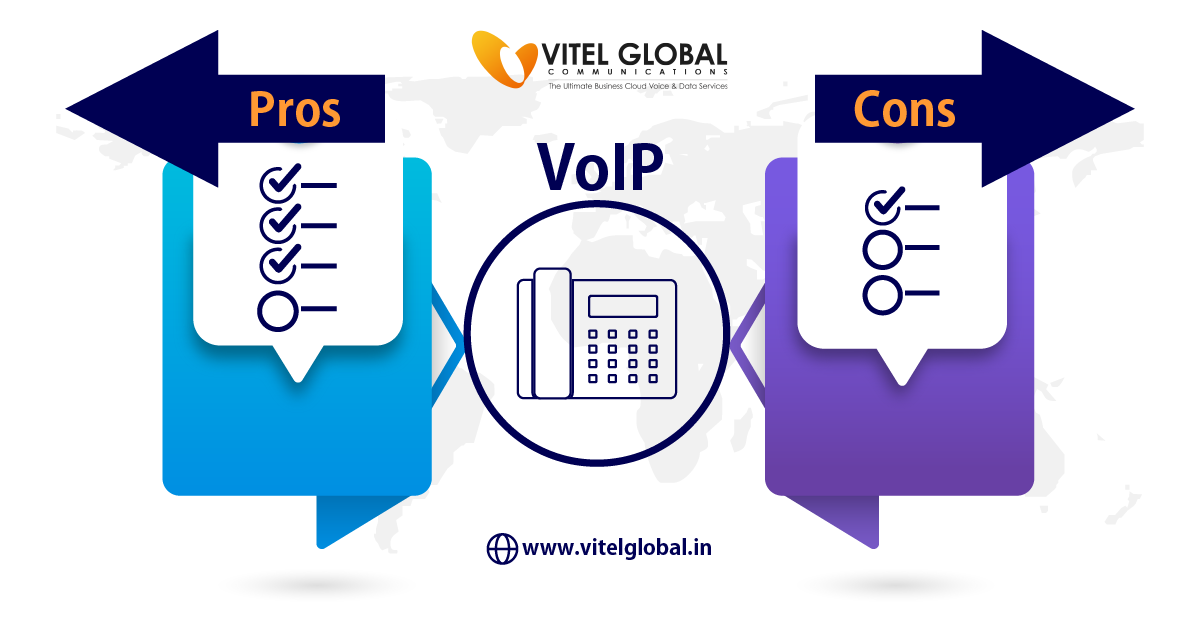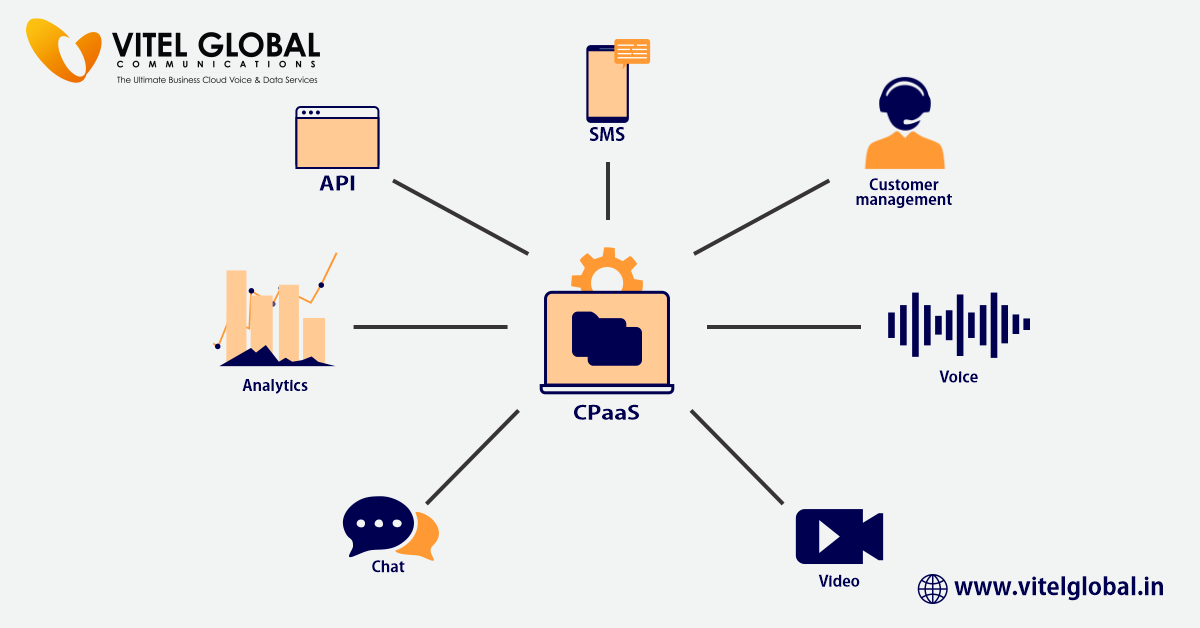Table of Contents
In this blog, we’ll assist you in weighing the benefits and drawbacks of VoIP phone service, so you can choose whether doing so is the right choice for your company.
Working from a desk phone is getting less and less appealing as the nature of the job changes. Desk and personal cell phones are being replaced with VoIP technology as more professionals and companies adopt flexible hours, remote work, and digital operations.
Voice over Internet Protocol simplifies lives. Each member of your team can make secure phone calls from a device of their choice with just an app and an internet connection without having to provide their number.
It takes work to match VoIP’s benefits. Although VoIP phone service offers many advantages, you should still research your options and make a well-informed decision before investing.
Advantages of VoIP Phone Service
Business VoIP systems have many advantages over conventional phone systems, including easier use and cheaper expenses. Here are six significant benefits of VoIP to think about.
1. Increased Mobility
You can’t bring your desk phone while working on the move. Traditional phone lines rely on hardware that is kept at your workplace, so you won’t be aware of any missed calls when you leave the workplace.
Mobile capabilities are a significant advantage of VoIP and softphones. Whatever internet-capable device is most convenient for you can be used to manage calls. Working at your desk? Manage calls using your browser or desktop. Walking across a park? Take out your smartphone and select your app. Taking a flight in a plane? You can make it function as long as you have internet.
Even better, you can enjoy all the benefits of utilizing a cell phone without disclosing your virtual number because many corporate VoIP providers have mobile apps that will ring your business number on your phone.
Desk phone compatibility is still an option with some VoIP providers, so you have that choice.
2. More Ways to Strengthen Your Business
There are no benefits to giving up conventional phone hardware. Several cloud-based VoIP service providers, including many other services, offer all the essential characteristics of a desk phone. In addition to the functions that traditional landlines offer, voicemail and call forwarding, VoIP services let you:
- Make more informed decisions: Enhance coaching and hiring decisions with call recordings and analytics, such as heat maps showing when calls and messages are coming in at their highest rates.
- Streamline business processes: By integrating with email, and other services, you may connect to the applications you already use.
- Create a more substantial local presence: Having local phone numbers in your service areas can help you establish trust with customers and boost the likelihood that they will pick up the phone.
- Stay on top of business relationships from anywhere: Stay current on client and team requirements using any device. Even receive calls and texts directly from their browser-based app with the most excellent providers. VoIP texting is available on most systems.
Contrasting landline phones, VoIP services assist you in streamlining all corporate operations and provide information that improves team performance.

3. Greater Ease of Use
You frequently need to memorize a list of codes to use the features on a desk phone system. It’s not at all logical. The user-friendly interfaces of VoIP platforms are similar to the built-in phone apps that your team members currently use daily. Since the learning curve is substantially smaller, you will only need to spend some time (if any) on team training.
4. Lower Costs
The price of regular telephone service can make it unaffordable for small businesses and startups. VoIP’s affordability is one of its main benefits. VoIP phone services are inexpensive, enabling you to track all your business talks more efficiently and save time. You can access all the required features by paying a nominal monthly price. Since cloud telephony is on the cloud, you may not need additional hardware. After downloading an app, team members can place calls using their browsers, computers, or smartphones.
Even if you wish to create a virtual call centre, VoIP allows you to manage calls without needing a full-fledged IT crew. VoIP services like Vitel Global come with customer support.
Long-distance call charges are frequently significantly reduced by alternatives like VoIP services. Collaborating with international clients or team members can protect your money from hefty phone bills. Even while working abroad, you can call the US, Canada, and many more at no additional cost. Only an internet connection is required.
5. Easy Scalability
Adding a new team member to a VoIP service is as easy as sending them an email invitation and paying a small monthly fee. You can provide each new employee with a unique or shared phone number through Vitel Global. You can choose to create a new number regardless of your location.
VoIP has many benefits for businesses expanding swiftly, significantly multiplying startups.
6. Reliable Voice Quality
We’ve all experienced call drops, slowness, and poor sound quality on our smartphones. Standard calls confuse you, your team members, and your clients when your signal weakens.
The most trustworthy phones available nowadays are VoIP phones. Anywhere you are, VoIP phone service can function with crystal-clear conversation quality if you have a strong internet connection, whether using Wi-Fi, data, or broadband internet service.
Disadvantages of VoIP Systems
There are a few limitations to what you can do with an internet-connected phone, but only a few. Even though VoIP systems are constantly evolving, there are three VoIP drawbacks that you could encounter.
1. No Offline Functionality
Your clients and team members won’t be able to reach you immediately through your business phone number when you’re without the internet.
Let’s consider the positive: There won’t be any business calls spoiling your peace when you want to vacation in a remote location. VoIP systems will place incoming calls on hold even if you don’t have service so you can return the call later.
Depending on your provider, you can switch to your data plan while on a call while leaving the office without making a callback.
2. Potential for Jitter
Your VoIP provider compresses your audio into small “data packs” that can be used to make calls over the internet. Because of this timely and accurate data assembly, you and your caller typically receive clear signals. However, network jitter can cause some signals to be delayed, which can result in choppy audio and other call quality problems.
What is the primary reason for jitter? Bad internet connectivity. While video conferencing services often consume more bandwidth than VoIP solutions, it is still advisable to have fast internet to mitigate this drawback in VoIP.
3. No Built-in Emergency Services
Non-fixed VoIP phones have the mobility many professionals need because they are not physically bound to a location. There needs to be a method for emergency services to find you. Emergency personnel may be sent to the wrong place if your VoIP account is tied to a physical address, yet you work remotely.
Conclusion
Given the above advantages and disadvantages, VoIP is unquestionably a worthwhile investment.
While VoIP isn’t a flawless technology, its advantages greatly outweigh its disadvantages and can help your company grow.
If your company concentrates on call-driven lead generation operations, advantages like greater flexibility, increased capacity for development, and increased accessibility can help your organization succeed.







